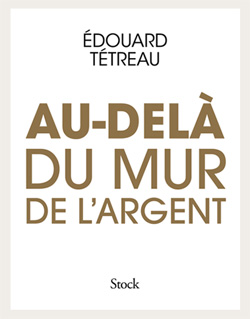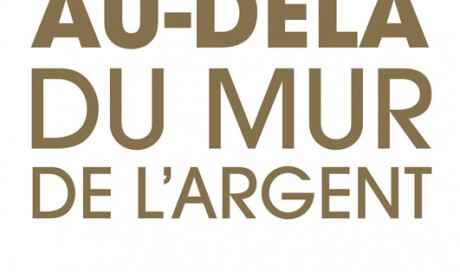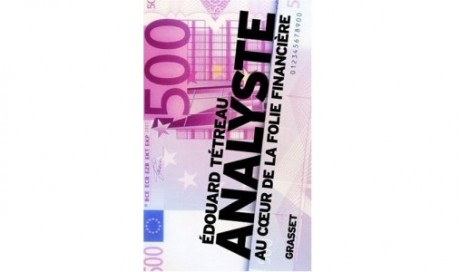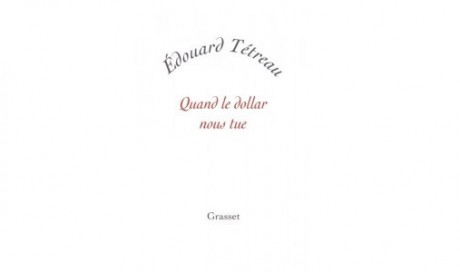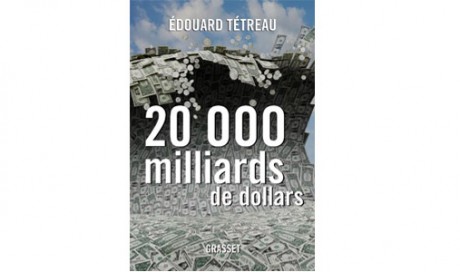- 106 Views
- 0 Comment
- No tags
The threat of sanctions placed by the United States on the French bank hovers over the group of Eurozone establishments. It has become urgently necessary to present a united diplomatic front against the imperialism of American law.
They were not all dying, but they had all been affected. While the first Eurozone bank will soon write a check of around 9 billion dollars to the Obama administration, we will reread with joy the tales of La Fontaine, as in “Sick Animals of the Plague”.
Extortion –because we should call it what it is –is just beginning for European banks. Reliable New York sources estimate that a dozen other European establishments are waiting, feverishly, for their major estates to get the ax, and for their leftovers to be siphoned for the profit of the American Treasury and agencies that helped these lucrative operations (DFS, Department of Financial Services) of Benjamin Lawsky. Too bad for the banking system and the economy and the growth of the Eurozone.
With the Obama administration in control, we have to wonder whether “the court judgments are made in black or white, according to whether you are English and insular or European and continental. Without judging the reality of BNP Paribas’ shame, one must put them in context among other recent sanctions in similar domains. The British bank Standard Chartered got the ball rolling in 2012. According to the DFS, they hid 250 billion USD of forbidden transactions with Iranian clients over a period of ten years, and were fined 667 million USD fine accordingly. BNP Paribas has concealed ten times less in illicit transactions in comparison, but will pay a fine 30 times as great. Why the vast difference? Was it because Sir John Peace, chairman of Standard Chartered, knew better than his French counterparts how to manipulate the humor and language of Shakespeare in order to present the 250 billion USD of transactions as a clerical error?
We need to have a sense of humor while comparing the total sum of BNP Paribas’ imposed fine, demanded by the Obama administration at HSBC in 2012 (1.9 billion dollars). Which facts were rebuked, in a 300-page American Senate report, to this global bank with its social scene at Canary Wharf? Trivialities. 19.7 billion dollars of transactions to Iran, North Korea, Myanmar between 2001 and 2007. But the icing on the cake? The beginning of a remarkably efficient system of money laundering from principal drug cartels in Central America. Perhaps most notably, the murderous Mexican cartels Sinaloa and Columbian Norte el Valle laundered around 881 million dollars through HSBC, having designed their industrial process to the point of manufacturing envelopes with same dimensions as the Mexican HSBC bank counters. Are we so sure that BNP Paribas’ possible mistakes were serious enough to justify a fine five times greater than that of HSBC?
This BNP Paribas business has not come to pass while waiting for the followers, but underlines two major challenges for Europe on the eve of the European Council’s confirmation of the nomination of Jean-Claude Juncker to the presidency of the European Commission. The first concerns the extraterritoriality of the American laws (regarding the dollar, but also digital platforms, under American law), and the henceforth known danger for enterprises, economies and European societies.
The second challenge is European unity facing exterior aggression. If European banks are to be blamed for one thing, it is, like the countries that accommodate them, the lack of a united front against the Obama administration’s extortion. Regardless of their qualities, Standard Chartered, BNP Paribas, ABN AMRO, HSBC, Deutsche Bank, their governments and respective diplomacies do not hold much sway in the face of previously American and subsequently Russian or Asian administrations if they are not sufficiently united to counter the financial, military, or economic threats. If the price to be paid to accelerate the political unity of Europe is only a few billion dollars, the lesson is well worth the money.
The first challenge for the Juncker Commission will be as follows: to accelerate the unity necessary for Europe on these strategic domains, and to remain particularly vigilant so as not to let Great Britain drift in a worried panic, as she does presently. Awkward at the very least, the defeat of David Cameron and his attempt to block Juncker’s nomination ought not be transformed into a humiliation. The European political project is destined for failure if Great Britain- or England, the country of Wales, and Northern Ireland, chooses to leave it behind. David Cameron’s salutary reminder of the subsidiarity principle (renationalization of many local decisions) devolves into an above-ground Brussels bureaucracy and British military and diplomatic capacities until British democratic liberal practice becomes an absolute condition for European success in the 21st century. The European Council meeting in Ypres must naturally attempt to save face for David Cameron, but must also propose an important role for the British in the new Commission, until now a position held by Catherine Ashton.
OUR RECENT
WORKS
-
20000 Milliards de…Book
Warning: Invalid argument supplied for foreach() in /home/edouardt/www/wp-content/themes/edtetreau/includes/part-portfolio.php on line 54
Warning: Invalid argument supplied for foreach() in /home/edouardt/www/wp-content/themes/edtetreau/includes/part-portfolio.php on line 54
Warning: Invalid argument supplied for foreach() in /home/edouardt/www/wp-content/themes/edtetreau/includes/part-portfolio.php on line 54


